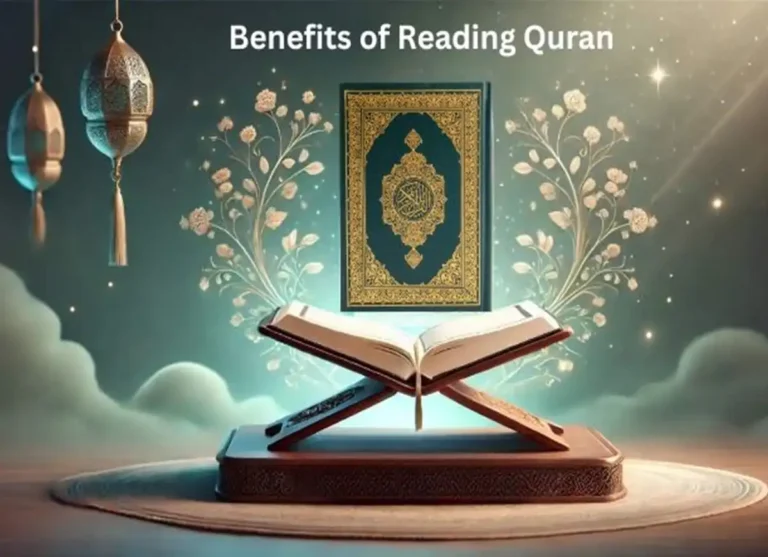Gratitude Across Time (Thanksgiving) – Drawing Wisdom from Ancient Scriptures on Acknowledging and Appreciating Life’s Gifts” It appears that giving gratitude for God’s bounty is a practice that has been in use since the earliest days.
From the earlier Greek Thesmophoria through the ancient Roman Cerealia to the modern custom of Thanksgiving, the people have offered prayers of Thanksgiving to their different gods in some shape or an alternative.
All the prophets of the Bible instructed their followers to be grateful to God for His bounty and blessings. Then the Quran came out and made an all-encompassing declaration:
كُلًّا نُّمِدُّ هَـٰؤُلَاءِ وَهَـٰؤُلَاءِ مِنْ عَطَاءِ رَبِّكَ ۚ وَمَا كَانَ عَطَاءُ رَبِّكَ مَحْظُورًا
( 17:20) ( 17:20) Of the Lord’s bounty, we bestow God’s blessings to everyone – along with the following: the bounties of the Lord aren’t exclusive (to anybody).
Thus, the bounties of God are for the entire humankind and cannot be restricted to just a specific nation or even a particular:
وَالْأَرْضَ وَضَعَهَا لِلْأَنَامِ ﴿﴾ فِيهَا فَاكِهَةٌ وَالنَّخْلُ ذَاتُ الْأَكْمَامِ ﴿﴾ وَالْحَبُّ ذُو الْعَصْفِ وَالرَّيْحَانُ ﴿﴾ فَبِأَيِّ آلَاءِ رَبِّكُمَا تُكَذِّبَانِ
(55:10-13) (55:10-13) Earth is spread to all living things and has fruit, palm trees that are sheathed with clusters [of dates], tall grain on its stalks, and fragrant plants. What, then, of your Sustainer’s power can you deny?
Also Read: The Ramazan – The Month of Tolerance, Compassion, and Interfaith Harmony
The Quran also states that Allah’s bounties are unlimited:
وَإِن تَعُدُّوا نِعْمَةَ اللَّـهِ لَا تُحْصُوهَا
(16:18) – For, should you try to count God’s blessings, you could never compute them!
فَاذْكُرُونِي أَذْكُرْكُمْ وَاشْكُرُوا لِي وَلَا تَكْفُرُونِ
( 2:152) ( 2:152) Remember Me, and I will keep You in my memory; be grateful to Me, and do not deny Me.
As per the Qur’an, The entire Earth and all its resources are gifts from God ( 16:5-16:16) and, therefore, must be considered sacred. The opening verse of the Qur’an declares it is because Allah is the sustainer of all of the universes (1:1). We all have to be grateful for this source of sustenance all the time.
وَهُوَ الَّذِي سَخَّرَ الْبَحْرَ لِتَأْكُلُوا مِنْهُ لَحْمًا طَرِيًّا وَتَسْتَخْرِجُوا مِنْهُ حِلْيَةً تَلْبَسُونَهَا وَتَرَى الْفُلْكَ مَوَاخِرَ فِيهِ وَلِتَبْتَغُوا مِن فَضْلِهِ وَلَعَلَّكُمْ تَشْكُرُونَ
(16:14) 16:14) – He is the one who made the sea submissive to His rules], so you can enjoy fresh meat and fish from it and take stones from it that can be worn. On that sea] you can see vessels navigating the waves, hoping that you may be able to] travel seeking the bounty of God and, therefore, have a reason to be thankful (to Him)for His blessings.
Also Read: Taraweeh Dua in English/Arabic for Ramadan Prayers
وَآيَةٌ لَّهُمُ الْأَرْضُ الْمَيْتَةُ أَحْيَيْنَاهَا وَأَخْرَجْنَا مِنْهَا حَبًّا فَمِنْهُ يَأْكُلُونَ ﴿﴾ وَجَعَلْنَا فِيهَا جَنَّاتٍ مِّن نَّخِيلٍ وَأَعْنَابٍ وَفَجَّرْنَا فِيهَا مِنَ الْعُيُونِ ﴿﴾ لِيَأْكُلُوا مِن ثَمَرِهِ وَمَا عَمِلَتْهُ أَيْدِيهِمْ ۖ أَفَلَا يَشْكُرُونَ
(36:33-35) (36:33-35) They also are a proof of Our power to create and bring back] from the dead earth, which We create and from which we bring forth grain that they can eat, and also [how] We create gardens out of dates-palms and vines on top. This caused springs to burst forth within it to allow them to take a bite of the fruits, although their hands did not create it. Would they not then be thankful?
Usually, the word shkhr ( Shukr) can be translated as to be “grateful” or “thankful”. The meaning behind shkhr ( r – sh) is the desire for things to become complete and complete, and also to be accessible to other people. shakira@un ( Shakiratun) refers to a she-camel, an ewe, or a goat with an udder full of milk (Lane’s Lexicon page 1585 Book I, page 1585].
Also Read: Fasting and The Fiqh
In the passage (2:152) in the verse (2:152), shkhr (Shukr) is employed against khfr (Kufr), which, in its roots, refers to hiding. Shkhr (Shukr) from Allah thus is the intention of Allah to maintain His blessings mph (Ni’ma) open in a manner that all people can gain the full benefit from these bounties. No one conceals them from (and consequently disallows them to) other human beings. This would be the case with her (Kufr). Allah declares that His bounty is offered to find out who performs shkhr (Shukr) and who performs shkhr (Shukr) and who does khfr (Kufr):
hadha min faDli rabiWy liyabluwaniy ‘a’ashkuru ‘am ‘akfuru
( 27:40) ( 27:40) This is the result of the bounty of my Sustainer to determine whether I am grateful or not!
Also Read: The Holy Month of Ramzan Prayers into The Early Hours
What is shkhr ( Shukr ), and what are the benefits that come from it? The shaker ( Shukr) of Allah can be something other than be accomplished just by reciting its phrases on your fingers or the beads of the Rosary. It requires effort from the human. Based on the previous root meaning, performing shkhr (Shukr) of Allah is to work continuously and keep the results of this work open to all. The Qur’an is also clear that performing (and not saying that word) shkhr (Shukr) improves the self-image of the person who is doing it (Shukr) (27:40 31:12). This, in turn, will lead to spiritual growth and growth.
waman shakara fainaWma yashkuru linafsihi
( 27:40) (27:40) the one who is thankful to God(27:40) is only thankful for his own blessings.
waman yashkur fainaWma yashkuru linafsihi
( 31:12) (31:12) for one who is thankful to Him] is only happy for the good of himself.
Because this is challenging to accomplish, a definite course should be outlined to achieve this. As we all know, enhancing our physical capabilities requires continuous determination and perseverance. This is the same for improving our human abilities, although it’s much more complicated. It’s the same with our development, but it’s more challenging. However, developing the Self (or the soul) is crucial to our future success, which will ultimately count. The Qur’an affirms that those who cultivate and nurture their souls will be successful ( 87:14, 91:9), and those who do not will fail ( 91:10) in the Day of Judgment.
Also Read: Ramadan’s Last Ten Days
qad ‘aflaHa man zakaWha waqad khaba man dasaWha
(91:9-91:10) (91:9-91.10) A blissful state will surely be the one that causes this Self to become purer. And truly lost is the one who buys it (in darkness).
Good habits lead to good actions. Good actions strengthen good practices. What may seem difficult at first turns out to be effortless to apply in everyday life every day. The most gratifying thanksgiving we can give to Allah is to ensure that His bounty and the fruit of one’s labor are available to all and without discrimination, regardless of race, religion, or ethnicity.
May Allah grant us the strength to accomplish this!
Clouds, rain, moon, and skies are always working for you.
When you’ve had your food, don’t be ignorant of the work the Universe has done on your behalf! [Saadi Shirazi]
Categories: PRAYER (Salat), ALMS (Zakat), SAWN (Fasting) HAJJ (Pilgrimage) & DUA (Supplications), Hadith and Tafseer, The Holy Quran, Quran Jaz 1- 114
Topics: Hijab, Arabic Corner, Islamic History, Biography, Islamic Studies, Halal & Haram








